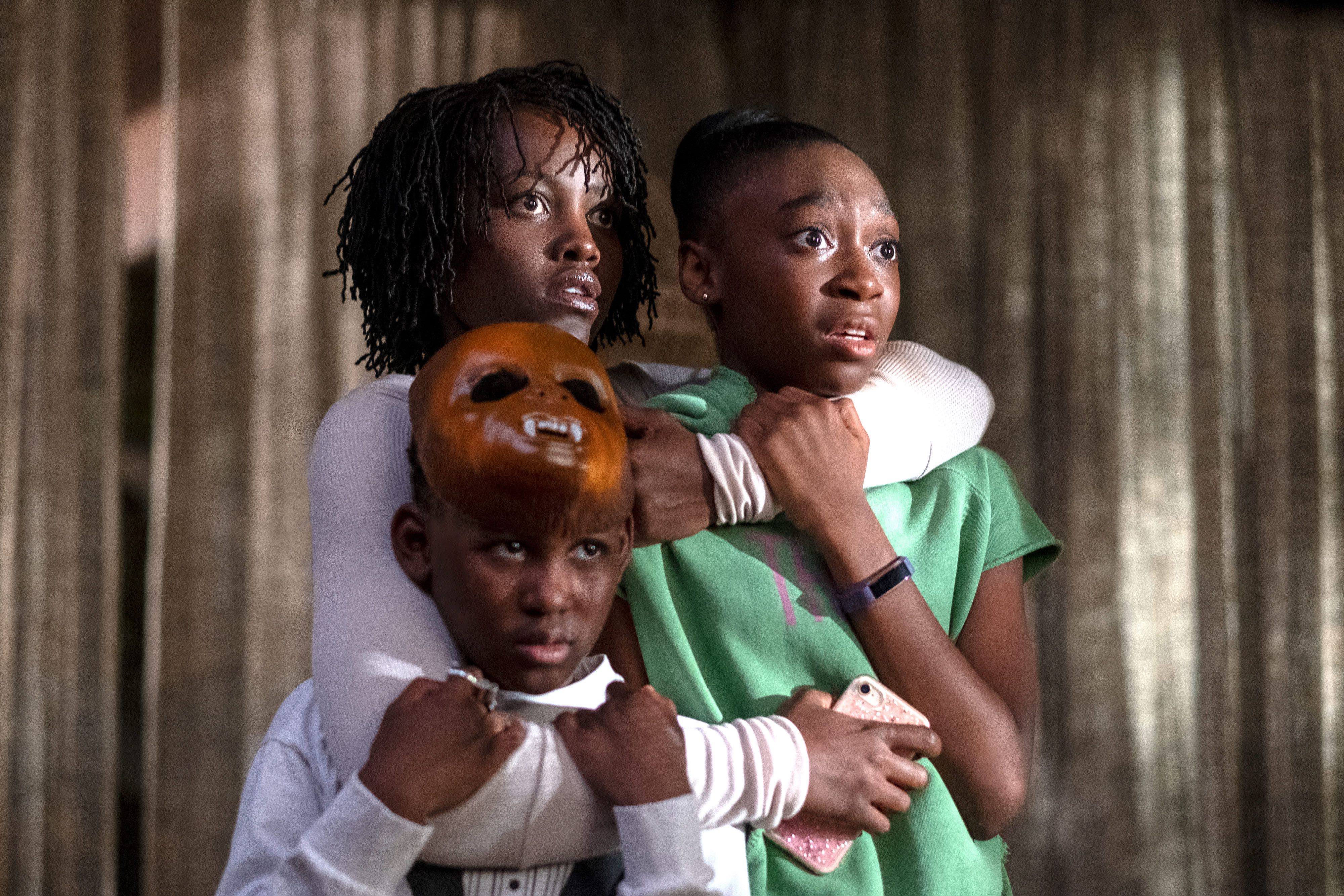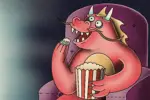Unlike many famous directors and screenwriters, Jordan Peele started off his career in comedy. After starring in the sketch series “Mad TV” for five seasons, Peele moved on to work alongside Keegan-Michael Key in their Comedy Central hit, “Key and Peele.”
Two years ago, Peele made the big jump to sole director of the horror film “Get Out.” His efforts and comedic background helped him earn his first Oscar win for best screenplay, as well as scattered nominations among other award shows. Now, Peele is back and better than ever with a brand-new horror flick, “Us,” that is much more than what meets the eye.
The film follows Adelaide Thomas (Lupita Nyong’o); her husband, Gabe Wilson (Winston Duke); their two children, Zora (Shahadi Wright Joseph) and Jason (Evan Alex); the parents’ friends, Josh (Tim Heidecker) and Kitty Tyler (Elisabeth Moss), and their twin daughters Becca and Lindsey (Cali and Noelle Sheldon). The whole group goes to the Wilson-family beach house for a nice time in Santa Cruz. While at the beach house, the Wilsons and Tylers are confronted by doppelgängers of themselves and get blackmailed and tortured into following their orders.
Throughout the film, there are flashbacks of Adelaide when she was younger and when she first met her doppelgänger, Red. In the present day, after trying to stop Red and the rest of her family’s doppelgängers, Adelaide discovers these copycats are appearing across the whole country, calling themselves “the tethered” and murdering their counterparts.
In terms of plot, “Us” is simple, yet is delivered in an intricate way — like every good horror movie. There are underlying tropes that need to be dug out but even just the surface-level story is engaging. Still, not everything is presented on a silver platter for the audience, and they need to do some work if they want to fully appreciate the movie.
While some moviegoers may find the intricacies annoying, most fans find them the best part about watching “Us.” The film has already surpassed $70 million in the box office domestically, after just one week in theaters. At this rate, “Us” could outperform “Get Out” in terms of movie grossing.
The goals of “Us” and “Get Out” may have originated from Peele, but their inherent plot meanings differ heavily.
In “Us,” there is a lurking message — our worst enemy is ourselves. In an interview with the Wall Street Journal Magazine, Peele addresses how society is living in a dark time, and although these flaws could be blamed on public figures, he wants his audience to think about how they contributed to this broken society at an individual level.
In “Us,” Peele creates doppelgängers that are their counterparts’ worst nightmare and includes multiple Easter eggs, like the Black Flag t-shirt and “11:11,” that leave some wondering about their significance in relation to the story. Peele uses terror much more than he did in “Get Out,” because once an audience is in the mindset of watching a horror movie, they are expecting to get scared. If an audience is already thinking about what might scare them, their imagination is running wild and even the slightest plot twist will make them more responsive to what’s happening.
While writing the screenplay, Peele thought about 9/11 and how, after the incident, many people were banned from entering the country. In a nation that’s rooted in freedom and justice for all, Peele found it contradictory how, post-9/11, everybody’s true dark side came out.
The accomplished star wanted to channel the darkness and turn it into something that everybody could relate to. Peele highlights how many people think they deserve the privilege that they have, and how when people enjoy it too much somebody else suffers because of it, a somebody personified by “the tethered.”
“Us” is rooted in horror yet provides critical social commentary like “Get Out,” but not at the same terrifying level. Despite the difference in story, “Us” and “Get Out” do seem to follow a pattern: Both films center around a middle-class family, both are delivered in a slow-burn style with a ton of buildup before the point is clearly defined and both films were well-produced with an outstanding cast.
Having to play two complex characters in a feature film is no easy task, yet Nyong’o did it with ease. Because the role was different compared to her past work, Nyong’o drew from real-life psychotics to understand the depth of her character’s psychological burden. Both characters suffered immense trauma, and channeling that voice, literally and figuratively, was the hardest part of the role. Nyong’o’s performance as Thomas and Red was impeccable, and it could be just enough to get her another Oscar nomination.
Even though it’s still too early to be talking about the next Oscars, I can only imagine that “Us” will have a dominant presence.
Personally, I don’t gravitate towards horror movies, but after hearing all the praise for “Get Out” and Peele’s secret storytelling abilities, I knew I had to watch “Us.” Although I did get a few scares, I was more intrigued by how the film left me wanting to watch it again. I’m sure if I did, I still wouldn’t be able to fully grasp everything that Peele was trying to accomplish, but that’s the beauty in it.
Now, Peele has set the standard for the horror/thriller genre and it’s just a matter of time before Peele releases his next film. There are some other conspiracy theories out there claiming that “Us” is the sequel to “Get Out.” At this point, I’m not sure I’m convinced, but with the way that Peele’s mind works, it’s definitely a possibility.
















